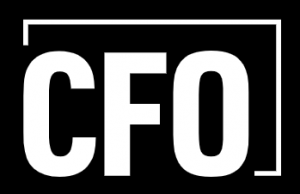CFOs: Building A Finance Full House
As Seen in CFO: Building A Finance Full House

By Pamela Stern, Head of Financial Accounting Advisory Services, & Jeff Wonsmos, Senior Director
A hot economy can mask a weak hand.
When revenue and profitability are on the up and up, the numbers aren’t met with as much scrutiny. Their accuracy and timeliness aren’t (overly) investigated, since the ‘whys’ behind growth never seem as essential as the ‘whys’ behind contraction and loss. And, even when a company is thriving, CFOs are still met with more scrutiny in a bear market than they are in its bull equivalent, where they can usually bluff their unbalanced team of talent, or inefficient processes, into a winning hand.
The COVID economy, however, has exposed that bluff.
PE sponsors are watching their green portfolio fall to yellow (and sometimes red). They are asking CFOs the hard questions about their numbers: about liquidity, about cash flow, about covenants. And, they’re expecting knowledgeable answers now.
Maybe you are a PE-backed CFO that has already seen the flags. You’ve asked your team, or various functional leads, for reports on the numbers – yet you’re not getting them in a timely fashion. Worse, you can’t get a clear answer on what’s behind the numbers – why things are the way they are. And worse yet, when you inquire further – when you ask not just about the numbers but about the process for collecting, aggregating, and reporting those numbers, you’re met with a “we do it this way, because we’ve always done it this way,” type of answer.
Those aren’t flags. Those are fires.
And at a time when the CFO has been tasked with ensuring the financial health of the company (with all of the cash management strategies and tactics that entails) having that kind of poor visibility into the numbers threatens to burn the whole thing to ground. But, it’s also illuminating – it suggests that CFOs not only have a numbers challenge, they have a people challenge. And they won’t survive the pandemic without addressing the functional gaps on the capital side of the house.
Because…the COVID economy is all about cash. Liquidity can break down without the proper attention, without the appropriate underlying controls, and without the solid leadership to ask the right questions, to run the right processes, and to think creatively about cash management strategies. And these aren’t your 2019 cash management strategies – these are your 2020 boot-strapped, crisis containment ways of just getting through the year. We’re talking about:
- Covenant Compliance:Staying in compliance with ratios for banks means making sure you have the right working capital assessment abilities from a process and people perspective. It means a team that can report and close in a timely manner. And, it means having a functional leader with the foresight to build strong relationships with lenders – that way, should the time come when covenants are exhausted, they have better insight into how to ask for, and secure, needed relief.
- Cash-In, Cash-Out:Collections and payables are no longer financial tasks. They’re now strategic weapons to guard off insolvency and to promote liquidity. They must be overseen by someone who understands how to operate those weapons effectively.
- Cash Controls:Once A/R has done its job well (no easy feat now), the question about how that cash is then allocated no longer has an easy answer. What is prioritized in this cash-strained environment? How do we mitigate against a loss of funds? What are the new controls for this new normal?
- Close:During COVID, a quick close is critical. Full stop. But so too is the removal of closing costs and time waste. The close process would benefit from someone who understands process and the role of automation in those processes.
If you are a PE-backed CFO that has seen the flags, that has felt the heat of the fires, then you know one of your critical cash strategies is sub-par. Add to that, how remote working and dispersed/distributed teams have exacerbated those weaknesses and exposed inefficiencies, and you’ve got yourself quite an issue, at exactly the wrong time to have it.
Or is it? In fact, it may be the exact right time. The smart CFO can use this unique time today to invest in the function for tomorrow.
What does that mean? What’s a PE-backed CFO to do? Clean house? Fire and hire anew? What’s needed here is a scalpel, not an axe. You don’t get rid of talent off the bat. You double-down on it, and on its importance to the function and to the organization. You invest in it – albeit strategically.
Now is the time to bring on the right type of interim, functional leadership on the capital side of the house. The time to bring in a Super Controller: the kind of person who can master core accounting processes while quickly, and tactically, gaining controls and efficiencies across a remote workforce. The type of person that can assess the processes and revamp them (standing up new remote controls, leveraging technology to automate cash transactions, reconciliation tools and approval workflows, working with operations on how customer and inventory demands can better feed forecasting, and creating the proper controls around spend management). The kind of person who partners with CFOs and CEOs to take on an active operational presence, knowing what levers to pull, and when to pull them.
This Super Controller will optimize the team and its processes by assessing and transforming the finance function – readying it for the transition from interim to in-seat. The result is a clear roadmap, so the company needn’t ‘gamble’ on the type of skills and expertise required to help run their specific finance function in this new normal (and the new, new normal beyond that).
And, so, CFOs navigating through the COVID economy now face a unique growth opportunity: a chance to ‘defy the odds’ by transforming pandemic-induced pressures and pandemic-exposed realities into game-changing intel. By recognizing and understanding team deficiencies, CFOs can invest in the necessary expertise to build a finance full house.



